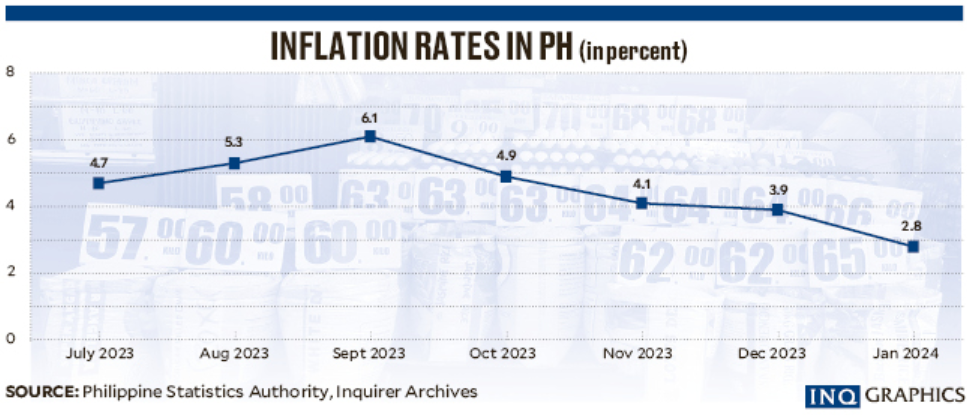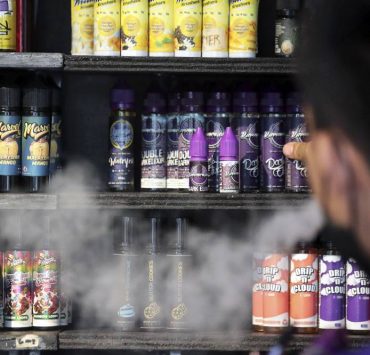Inflation softened in January to over 3-year low of 2.8%

Consumer prices grew at a much slower pace in January amid better food supply, although the El Niño weather phenomenon is threatening to erase some of the government’s hard-won gains in its fight to bring inflation back to manageable levels.
Inflation, as measured by the Consumer Price Index (CPI), softened to an annualized rate of 2.8 percent in the first month of 2024, from 3.9 percent in December, the Philippine Statistics Authority (PSA) reported on Tuesday.
The latest reading, the lowest since October 2020, matched the lower-end of the Bangko Sentral ng Pilipinas’ (BSP) forecast range for the month. It was also the second consecutive month that inflation eased to within the BSP’s 2 to 4 percent target after hovering above that range for 20 months.
The biggest contributor to the lower CPI was the milder food price inflation, which moderated to 3.5 percent in January, from 5.4 percent in December. That was the slowest spike in food prices since March 2022, data showed, with vegetables (-20.8 percent) and meat (-0.7 percent) leading the way.
While there were less upward price pressures last month, especially among key food items, the PSA said a “substantial” part of the milder inflation in January was due to a high “base effect.”
Short-lived
This means that the headline inflation rate in January inevitably posted a sharp slowdown because it was compared to the figure recorded a year ago, when costly utilities unexpectedly pushed up the CPI to a high of 8.7 percent.
Once the favorable base effects fade, Aris Dacanay, economist at HSBC Global Research, said inflation may resume its ascent in the coming months, potentially squeezing household budgets anew. That projected acceleration, Dacanay said, would be worsened by possible wage and transport fare hikes, as well as the prolonged El Niño dry spell.
“We expect this relief to be short-lived,” Dacanay said. “In fact, we expect headline CPI to accelerate gradually in the months ahead and eventually touch the BSP’s upper band target of 4 percent due to base effects.”
Indeed, PSA data showed rice price inflation sizzled to a 14-year high of 22.6 percent in January amid the El Niño onslaught and rising global prices of the commodity, a staple food for Filipinos. National Statistician Claire Dennis Mapa said a low base effect would likely magnify rice price inflation to around 20 percent until July this year.
Secretary Arsenio Balisacan of the National Economic and Development Authority said the Marcos administration would “introduce stop-gap measures, as necessary, such as allowing further imports on key commodities until our supply stabilizes.”

















